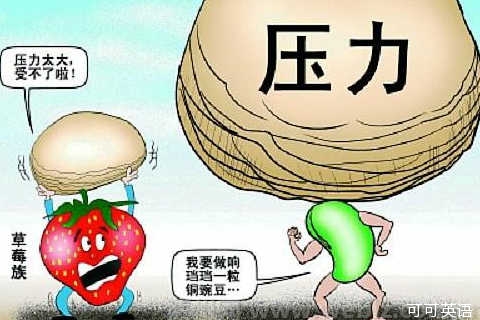(单词翻译:单击)
【背景】
坊间对80后的议论还没有褪去,针对90后的种种说法又袭来了。他们的素质都很不错,可就是承受不了打击,太容易受伤害了。人们用了一个很生动的比喻来指代他们——草莓族。
【新闻】
我们来看一段相关的英文报道
They look chic and sophisticated. They are soft and get hurt easily. They seem unbearably spoilt and can't take much pressure. They are the so-called "Strawberry Generation".
The term was coined by a Taiwan writer in one of her books about office rules. It refers to the post-60s generation of office workers, who grew up in a protected environment and got easily dented–just like strawberries–by life's lightest knocks. This expression is now finding its way into the mainland, and refers to young workers, of only child families, who have been active in the workforce for just a year or two.
他们看起来时尚又世故。他们软弱也容易受伤。他们好像被宠得一塌糊涂,承受不了什么压力。他们就是所谓的“草莓族”。
“草莓族”这个说法是由一位台湾作家在她一本关于办公室法则的书中创造出来的,它指的是60年代后出生的办公室职员,他们像草莓一样是在多方保护的环境中长大的,生活中轻微的碰撞就能让他们受到伤害。这个说法现在在中国大陆也很流行,指刚刚参加工作一两年的独生子女一代。
【讲解】
“Strawberry Generation”解释为草莓族,是指刚刚参加工作一两年的独生子女一代。“generation”解释为一代,比如:Sandwich Generation 三明治一代。
“coin”通常作名词使用,解释为硬币、钱币。此处作为动词使用,解释为创造(新词),比如:coin new words 创造新词、coin money 发大财。



